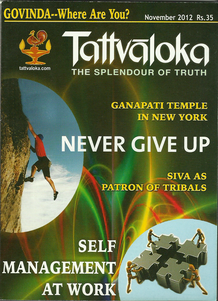Q: What is the difference between the witness, witness consciousness and consciousness? I know myself as the witness or maybe as witness consciousness but I do not know myself as all there is which, I guess, would be knowing myself as consciousness. But how can I ever not see the world of objects? So do I not remain a witness choicelessly?
A (Sitara): Contained in your question are seven questions (which I have passed on to the other bloggers, so some may refer to them):
1. What is the difference between the witness, witness consciousness and consciousness?
This will be answered below along with the last question.
2. (implied question) Is there a difference between the witness and witness consciousness?
Answer: no, not in the way I use the terms. But there is the possibility of a flawed use of the term ‘witness’. Witness means the ultimate subject that cannot be objectified. If witnessing is attributed to the mind, the so-called witness is nothing but a thought, i.e. it is just another object. And the so-called witnessing is nothing but an experience.
If, however, witness is used in the sense of ‘ultimate subject’, you can use ‘witness’ and ‘witness consciousness’ interchangeably. I prefer the term ‘witness consciousness’ (or simply ‘witnessing’) because the term ‘witness’ suggest too much of a personality. Continue reading →





